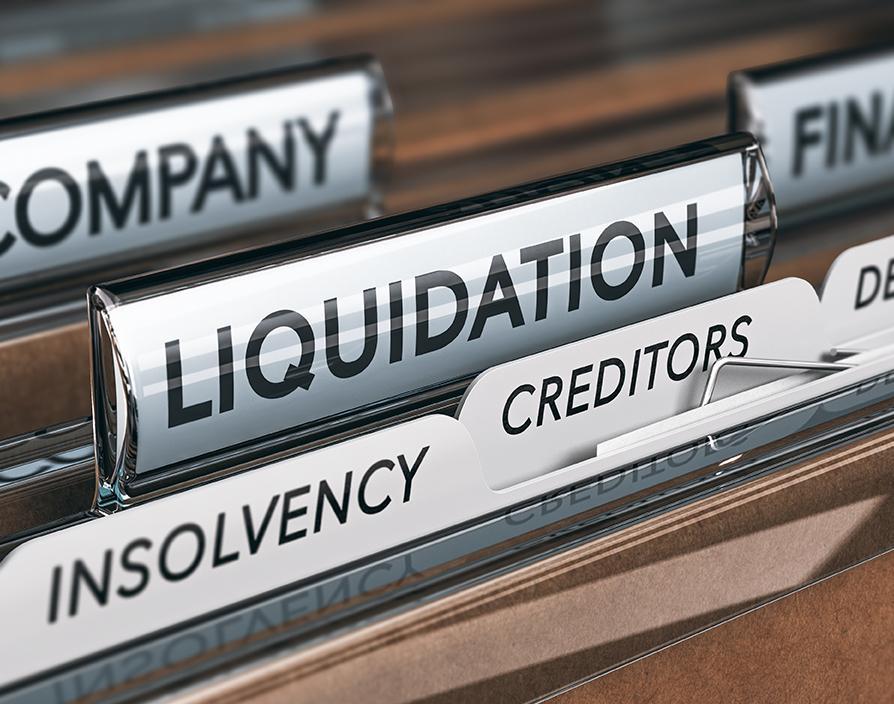The Best Strategy To Use For Insolvency Practitioner
The Best Strategy To Use For Insolvency Practitioner
Blog Article
Some Known Details About Insolvency Practitioner
Table of ContentsThe Main Principles Of Insolvency Practitioner Insolvency Practitioner - QuestionsGetting The Insolvency Practitioner To WorkInsolvency Practitioner Can Be Fun For Everyone9 Simple Techniques For Insolvency PractitionerGet This Report about Insolvency PractitionerThe 9-Second Trick For Insolvency Practitioner
Insolvency is when obligations are above the worth of the business, or when a borrower can not pay the financial debts they owe. A business can become bankrupt as a result of a number of situations that lead to bad capital. When encountered with insolvency, a service or individual can call financial institutions straight and restructure financial debts to pay them off.Company proprietors may get in touch with financial institutions straight and restructure debts right into even more workable installments. Lenders are usually amenable to this strategy due to the fact that they want to be paid back and stay clear of losses, even if the payment is on a postponed timetable.
The 30-Second Trick For Insolvency Practitioner
The proprietor creates a proposition outlining how the debt might be reorganized utilizing cost decreases or other strategies for assistance. The proposal shows creditors how the company may create sufficient cash flow for lucrative operations while paying its financial obligations. Typically, a forgiven debt might be taken into consideration revenue by the Internal Earnings Solution (INTERNAL REVENUE SERVICE).

Not known Facts About Insolvency Practitioner
When operations discontinue, so does the company's earnings (Insolvency Practitioner). Some business come to be bankrupt due to the fact that their goods or services don't advance to fit customers' transforming demands.
Expenses exceed profits and bills continue to be unsettled. Sorts of insolvency consist of cash-flow insolvency and balance-sheet bankruptcy. Cash-flow bankruptcy occurs when a firm has the assets to cover their financial obligations but they remain in the wrong kind, such as genuine estate rather than liquid funds. Balance-sheet insolvency, on the various other hand, suggests an absence of assets in any type of kind to cover financial debts.
The internal revenue service states that a person is financially troubled when the overall liabilities exceed total properties. A insolvency, on the various other hand, is a real court order that portrays how an insolvent individual or business will settle their financial institutions, or how they will certainly offer their properties in order to make the payments.
The Ultimate Guide To Insolvency Practitioner

Comprehending the aspects that can lead to insolvency, such as overspending, can assist you stop bankruptcy and its consequences.
Some Known Questions About Insolvency Practitioner.
It is well recognized that directors and policemans of companies (and supervisors of minimal liability business) owe fiduciary obligations to their organizations and their investors (or members). These fiduciary commitments are specified by state statutes and, though there are variants from state to state, they commonly include a responsibility of commitment and a duty of treatment.
The responsibility of care calls for directors and policemans to exercise diligence, to make enlightened choices, and to act in great faith to make sure that their actions remain in the most effective passion of the company. Though beyond the range of this conversation, some states enable these tasks to be like it restricted either by so noting in the business records or adhering to various other demands.
Some Known Details About Insolvency Practitioner
Many states specify bankruptcy in 2 means( 1) when a company's responsibilities become better than the sum of its possessions or (2) when the company ends up being incapable to pay its financial obligations as they end up being dueand accept both meanings (Insolvency Practitioner). The change in tasks happens because when a company is insolvent, there is no worth in the company beyond that owed to the firm's creditors to ensure that the equity owners no more have a financial risk in the company
Beware about click here for more info offering shareholders preferential therapy at the cost of creditors (e.g., licensing and funding a dividend or a supply redemption). Be careful regarding preferential therapy in between courses of investors. Make practical efforts to learn all the truths prior to taking a specific training course of activity; directors should genuinely think that any decisions made remain in the most effective rate of interests of the company in its whole (i.e., decisions will certainly be assessed in hindsight in light of the impact of such actions on the firm).
In any see this here type of bankruptcy or insolvency case, payments made to certain financial institutions at the cost of various other creditors can be clawed back, particularly if there is some connection between the firm and the creditor. Think about recommending at an annual investor conference (or any kind of various other meeting of stockholders) a resolution attesting that all previous service decisions and actions taken by the directors and police officers of the firm were taken in great belief after an exercise of reasonable care.
Insolvency Practitioner Fundamentals Explained
Totally disclose any kind of individual or company connections with events on the various other side of deals including the firm to prevent the look of a dispute of passion. In examining prospective fund increasing purchases or a sale of properties of the struggling company, know that these purchases might be looked at later taking into account any type of subsequent expansion of supervisors' fiduciary responsibilities to consist of financial institutions.
Report this page